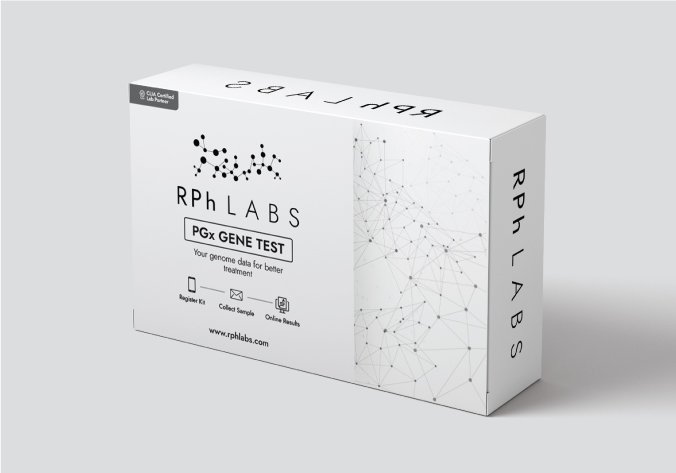Pharmacogenomics (PGx) testing is revolutionizing how mental health conditions are treated. By analyzing genetic variations, PGx testing provides invaluable insights into how an individual might respond to specific medications, enabling a personalized approach to mental health care. This detailed guide explores every facet of PGx testing kits and their transformative role in mental health treatment.
Understanding PGx Testing Kits in Mental Health
Pharmacogenomics, often abbreviated as PGx, combines pharmacology and genetics to assess how genetic makeup influences drug efficacy and safety. In mental health care, PGx testing kits are a critical tool for aligning treatment strategies with a patient’s unique genetic profile.
These tests are especially useful for patients who have experienced limited success or adverse effects with traditional medication regimens. By incorporating genetic insights, mental health professionals can select medications that are more likely to be effective and less likely to cause unwanted side effects.
What is PGx Testing?
PGx testing involves analyzing specific genes associated with drug metabolism and response. The test typically requires a simple cheek swab or blood sample, which is analyzed in a laboratory. Results identify genetic variations that can influence how a person processes or reacts to certain medications. This information is then used to tailor medication choices for improved outcomes.
How PGx Testing Works
The core of PGx testing lies in understanding the role of enzymes, particularly those produced by the cytochrome P450 (CYP450) gene family. These enzymes play a significant role in the metabolism of many medications, including those used to treat mental health disorders. By identifying genetic variations in these enzymes, PGx testing predicts how efficiently a patient metabolizes specific drugs.
For example:
- Poor metabolizers may process drugs too slowly, leading to toxicity.
- Ultra-rapid metabolizers may clear drugs too quickly, rendering them ineffective.
Importance of PGx Testing in Mental Health
Mental health disorders often involve a trial-and-error approach to medication. This can lead to prolonged suffering and frustration for patients. PGx testing mitigates this by:
- Reducing guesswork in medication selection.
- Shortening the time to achieve therapeutic outcomes.
- Minimizing the risk of adverse drug reactions.
In essence, PGx testing empowers clinicians to develop a truly personalized treatment plan.
Benefits of Using PGx Testing Kits
- Personalized Treatment: Aligns medication choices with a patient’s unique genetic makeup.
- Improved Efficacy: Enhances the likelihood of therapeutic success.
- Reduced Side Effects: Lowers the chances of adverse drug reactions.
- Cost-Effectiveness: Reduces the need for multiple medication trials.
- Patient Satisfaction: Leads to quicker relief and greater adherence to treatment plans.
Types of Mental Health Disorders Aided by PGx Testing
PGx testing has proven particularly beneficial in managing:
- Depression: Tailoring antidepressants to individual needs.
- Anxiety Disorders: Reducing the trial-and-error period for anxiolytics.
- Bipolar Disorder: Identifying effective mood stabilizers.
- Schizophrenia: Optimizing antipsychotic treatments.
- ADHD: Customizing stimulant and non-stimulant options.
Key Genes Analyzed in PGx Testing for Mental Health
Several genes are central to PGx testing in mental health care:
- CYP450 Genes: Crucial for drug metabolism.
- SLC6A4: Associated with serotonin transport and antidepressant response.
- COMT: Influences dopamine metabolism.
- HTR2A: Linked to serotonin receptor activity.
Understanding these genetic markers helps clinicians predict patient-specific drug responses.
PGx Testing and Antidepressants
Antidepressants like SSRIs, SNRIs, and TCAs vary significantly in their effectiveness based on genetic differences. PGx testing identifies:
- Which medications are likely to be effective.
- Appropriate dosing to minimize side effects.
For example, patients with variations in the CYP2D6 or CYP2C19 genes may require adjusted doses or alternative medications to achieve the desired effects.
PGx Testing for Antipsychotics and Mood Stabilizers
Antipsychotics and mood stabilizers are essential for treating conditions like schizophrenia and bipolar disorder, but they often come with severe side effects. PGx testing can:
- Predict risks of weight gain, sedation, or tardive dyskinesia.
- Optimize dosing strategies to balance efficacy with safety.
The Role of PGx Testing in Reducing Adverse Drug Reactions
Adverse drug reactions (ADRs) are a significant challenge in mental health treatment. PGx testing:
- Identifies genetic predispositions to ADRs.
- Helps avoid medications likely to cause severe side effects.
- Improves overall patient safety.
PGx Testing Kits: How to Get Started
- Consultation: Discuss the need for PGx testing with a healthcare provider.
- Selection: Choose a reputable PGx testing kit tailored to mental health medications.
- Sample Collection: Follow instructions to collect and submit a sample.
- Results Interpretation: Review results with a clinician to guide treatment adjustments.
Challenges and Limitations of PGx Testing Kits
While promising, PGx testing is not without challenges:
- Ethical Concerns: Privacy and data security issues.
- Limited Accessibility: High costs may restrict access.
- Scientific Gaps: Genetic insights do not account for all factors influencing drug response.
Success Stories and Real-Life Applications
Case studies illustrate the profound impact of PGx testing:
- A patient with treatment-resistant depression found relief after PGx testing identified a compatible medication.
- A bipolar disorder patient avoided severe side effects through tailored medication choices.
Future of PGx Testing in Mental Health
The field of pharmacogenomics continues to evolve, with future advancements likely to include:
- Integration with artificial intelligence for more precise predictions.
- Increased affordability and accessibility of testing kits.
- Expanded research into genetic markers.
FAQs About PGx Testing Kits for Mental Health
- What is the cost of a PGx testing kit?
Costs vary but typically range from $300 to $500. Insurance may cover some tests. - How long does it take to get results?
Results are usually available within 1-2 weeks. - Can PGx testing replace traditional mental health evaluations?
No, it complements but does not replace comprehensive evaluations. - Are PGx testing results reliable?
Yes, when conducted by certified labs and interpreted by qualified professionals. - Do all medications require PGx testing?
No, only medications with known genetic interactions benefit from testing. - Is PGx testing covered by insurance?
Some insurance plans cover PGx testing, especially if medically necessary.

